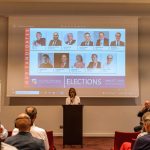- May 1, 2015
- -

Anti-counterfeiting is an endless battle, in which infringers have at their disposal all kinds of illegal weapons and methods. On the other hand, brand owners’ anti-counterfeiting efforts rely on the state enforcement authorities and the judiciary system, representing the public sector, as well as private services, namely anti-counterfeiting professionals, i.e. lawyers and investigators. What is worth noting is the general premise that official state initiative is oftentimes incomplete in terms of producing tangible, measurable results, when not supported by private initiative.
When taking a closer look at the role of the two professionals in the private sector side by side, one might think that there would be not much to say, since lawyers and investigators operate under separate regimes and have clearly different job descriptions. Legal advocacy operates under a strict regulatory framework, reflecting a glorious and prestigious long standing tradition in establishing justice and the rule of law. Legal consulting and litigation is in the core of the provision of legal services; in many jurisdictions, members of the local bar have a very limited scope of work, not always close to market realities, and with no leeway whatsoever for providing services that are not tightly related to lawyering. On the other hand, investigators and private enforcement specialists in general, offer a range of services not as much related to the law, but with a much more technical and practical approach to matters.
The last few years, however, boundaries are becoming tenuous. Public and governmental awareness has led to the establishment of significant anti-counterfeiting tools, the main characteristic of which is dealing with counterfeits outside and beyond the strict limits of the judiciary system. Not only police, but also customs, financial inspection units and official market inspectors deal with counterfeits on site, responding to complaints and requiring assistance in the field. This by no means excludes or limits the possibility for such actions to also lead to litigation and judiciary proceedings. As a matter of fact, lawyers should not wait in the sidelines until things progress towards that direction; instead, they should ideally be involved from the beginning, in a manner that can either effectively
guarantee successful out-of-court resolution, or secure them firsthand information and powerful evidence in case litigation is required.
Traditional professional roles are often proven insufficient as regards modern anti-counterfeiting efforts, when it comes to brand enforcement. The issues encountered when the strict traditional approach applies, are usually the following:
Investigators have minimum legal knowledge
This of course does not mean that investigators should hold a law degree. Nevertheless, in most cases, investigators act on their own, taking initiatives, without proper legal guidance. In the operations phase (e.g. when organising and conducting a raid in counterfeiter premises), one should secure that all procedures comply with the relevant legal framework; otherwise there is a risk that the seized counterfeit products are released at a later stage. Cases jeopardized in this way may still be won at the criminal proceedings phase; however, inexcusable failures have been witnessed, which could have been prevented, should proactive legal consultation have been at hand.
By way of example, an investigation was carried out at the premises of a local trader on behalf of a multinational brand owner in the apparel industry. Initial information referred to the premises being a large warehouse, storing huge amounts of counterfeit products. When it came to the issue of choosing the competent authority to take charge, the investigators informed the official market inspectors and not the police. When the market inspectors arrived, they encountered difficulties in gaining access to the premises and, eventually, police help was sought. As such, valuable time was lost for a warrant to be issued and crucial evidence was not preserved at the end. The error in identifying the competent authority to take charge from the beginning was proved critical.
Lawyers lack in investigative and technical skills
Would anyone expect from lawyers to have investigative or technical skills? Well, brand owners should. One may have in mind the typical counsel seating near old leather bound volumes, citing legal statutes and literature. As a matter of fact, many a time lawyers stay in their office waiting for evidence to be submitted before them, without being actively involved in the process of gathering information. However, it is not rare for a lawyer to feel that evidence is not scrutinized as it should be, or even to be aware of
complimentary information and cross-reference sources as well. In some cases, the lawyer may refer the case back to the investigator and brand owner’s technical personnel, especially when street-level work is required. In other cases, lawyers, collecting complementary information and perfecting evidence, may need to complete the investigation themselves.
Furthermore, lack of technical knowledge may jeopardize a case in court. A skillful defense lawyer may manipulate evidence, focusing on technical detail, especially in criminal proceedings, where the brand owner should prove the intent and knowledge of counterfeiting activity. This often occurs at a stage in the proceedings where an expert can not jump in to provide the court with clarifications; a well prepared lawyer, with a broader grasp of evidence and its technical particulars can decisively tip the scale in favour of the plaintiff.
In a case involving counterfeit electronics of a famous brand owner, a lawyer was examining a witness of the defendant in the criminal court room. The witness, a person claiming to be an industry expert, argued that the brand owner varied their security features on products and that the contested goods were genuine and not counterfeit. Such argument was presented for the first time during criminal proceedings and there was not enough time to call in an expert to defend the position of the brand owner. Had the lawyer received technical training, adequate defense would have been probably achieved. Technical training would have equipped the lawyer with the readiness and flexibility needed to take instant decisions with respect to the series of questions towards the witness and the provision of technical data at that moment. It is often that such a momentum is lost when lawyers are challenged with issues they are not aware of.
A more “holistic” approach
It is not all that common that legal and investigative services providers work truly side by side or even under the same roof. Our opinion is that it is time for a holistic approach to meet brand owners’ needs in what becomes a more complicated struggle, which requires not only synergies, but a whole new perception of a changing domain of services.
- Desk research In jurisdictions where data is not openly available, desk research can not be made effectively without having a legal background and privileged access reserved for lawyers. In such jurisdictions, desk research is effectively made by lawyers, who could however also work on this together with investigators, for evaluating retrieved data.Recently, an investigator conducted desk research on the business of a small shop owner. Due to lack of access to court records, which is reserved for lawyers, the investigator was excluded from information relevant to prior litigation against the same party by other brand owners. In case such data was available, the case would have been handled in a different way: such evidence was proof of infringement on a commercial scale, widening the prospects of the case and offering enhanced tools to achieve the disclosure of information on distribution channels. Moreover, in this particular case, possible synergies between brand owners, including cost-sharing, were lost and exchange of potentially mutual information was blocked.
- A case always starts at street-level
A lawyer should be always aware of all aspects of the investigation and obtain detailed feedback. Information needs to be gathered on contacts, trade techniques, communication methods, even by leaving the office and paying visits on site, in order to get the bigger picture in a case.
Recently, a lawyer sent a cease and desist letter on behalf of a brand owner to a small retail shop and negotiated a settlement agreement. At a later date, the infringer suffered a search by investigators, but, with the cease and desist letter having “opened his eyes”, he was already more diligent in concealing evidence. In this case, legal action jeopardized the investigation, due to lack of communication between the investigators and the lawyer, a failure which could have been prevented had these professionals established an ongoing information pipeline.
- An investigation is better conducted with professional legal guidance
Setting simple cases aside, investigations should be conducted with a view to subsequent litigation: what to look for, what evidence to collect, what to notice, is always related to what is needed to substantiate a case and to be prepared to confront any defense arguments the defendant might put forward before the judge. The lawyer’s involvement is therefore crucial from the get go, as the case will be better substantiated in court when a legal professional coordinates and supervises the collection of evidence and evaluates each step of the investigation and its results. Furthermore, global knowledge of the case provides great assistance, not only with respect to evidence submission, but with witness examination as well.
During examination on a counterfeits case, the witness was describing the premises raided by the police and was asked for further clarifications on the compound, the storing facilities and the protective measures taken by the infringer. However, the description made by the witness was inconsistent with the actual status on site, which could have been picked up and mitigated by the lawyer only if the latter had paid a visit on site himself.
- Police enforcement action is better conducted with professional legal guidance
A lawyer with full knowledge of criminal procedure can prevent or remedy mistakes made by the enforcement authorities in operations. Warning for procedural traps, collection of evidence and reserving thereof are always better conducted with the leverage of an experienced legal practitioner (rather than an investigator, who is usually an ex police officer, thus sharing more or less the same know how with the police), who has a clear goal, actually a shared one with the police: to respond to the challenges of legal action and criminal procedure by securing that authorities will gain as much information as possible from a case which will lead to a conviction.
How to get the most: the future points to a concerted service, offered by professionals working together, even under the same roof
The necessity for the different, yet complementary, roles of legal and investigation professionals in the anti-counterfeiting battle to coexist is becoming more and more evident nowadays. Due to the high number of ex officio actions, which often lead to the resolution of cases before they reach the courtroom, competition has been increasing between legal and investigation professionals, who are eager to take exclusive ownership of cases vis a vis brand owners and seem to fail to realise that close collaboration could actually prove more fruitful than competition, for both sides alike.One could argue that the ideal vehicle, carrying the optimum combination of weapons and ammunition in the war against counterfeits would be an IP firm, the human resources of which would comprise professionals willing to get out of their strict job description and blend-in; lawyers who would get an essence of investigation and investigators who would be closely consulted by lawyers in evidence assessment. Lawyers that would collect evidence on site and get to have a decisive opinion in drafting investigation reports, but also investigators who would review written submissions and give to the lawyers their insight and additional information in evidence evaluation.
Such a powerhouse of anti-counterfeit knowledge and experience combined could go a long way, making a real difference in the battle against counterfeiters.
Panagiotis Drakopoulos
Senior Partner
Michalis Kosmopoulos
Partner Greece






